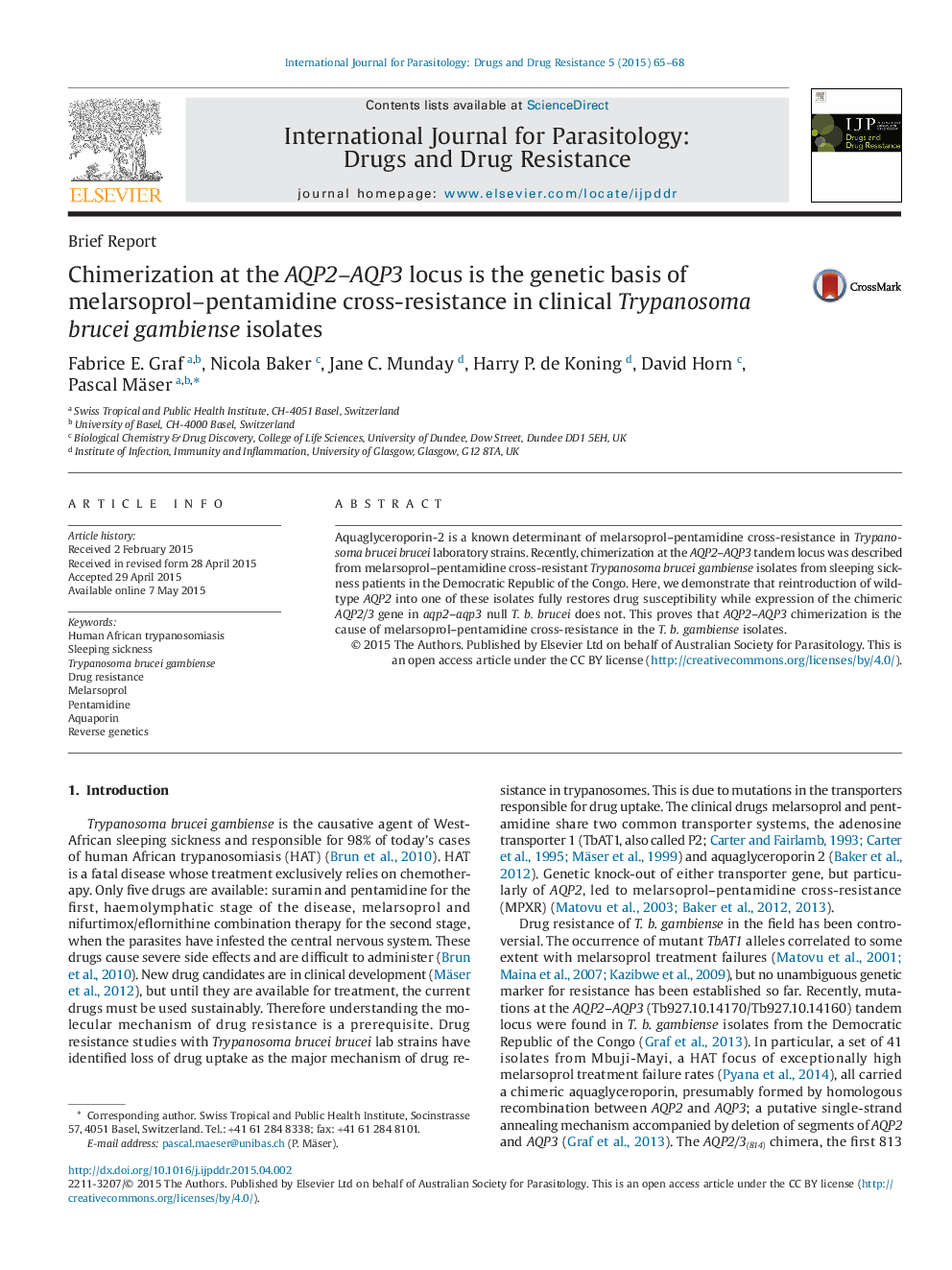| کد مقاله | کد نشریه | سال انتشار | مقاله انگلیسی | نسخه تمام متن |
|---|---|---|---|---|
| 2054597 | 1075667 | 2015 | 4 صفحه PDF | دانلود رایگان |

• Expression of AQP2 restores drug susceptibility in a resistant Trypanosoma brucei gambiense isolate.
• The AQP2/3 chimera from the resistant isolate does not complement AQP2 deletion.
• Hence AQP2/3 chimerization accompanied by loss of AQP2 is the cause of drug resistance.
Aquaglyceroporin-2 is a known determinant of melarsoprol–pentamidine cross-resistance in Trypanosoma brucei brucei laboratory strains. Recently, chimerization at the AQP2–AQP3 tandem locus was described from melarsoprol–pentamidine cross-resistant Trypanosoma brucei gambiense isolates from sleeping sickness patients in the Democratic Republic of the Congo. Here, we demonstrate that reintroduction of wild-type AQP2 into one of these isolates fully restores drug susceptibility while expression of the chimeric AQP2/3 gene in aqp2–aqp3 null T. b. brucei does not. This proves that AQP2–AQP3 chimerization is the cause of melarsoprol–pentamidine cross-resistance in the T. b. gambiense isolates.
Graphical AbstractFigure optionsDownload as PowerPoint slide
Journal: International Journal for Parasitology: Drugs and Drug Resistance - Volume 5, Issue 2, August 2015, Pages 65–68